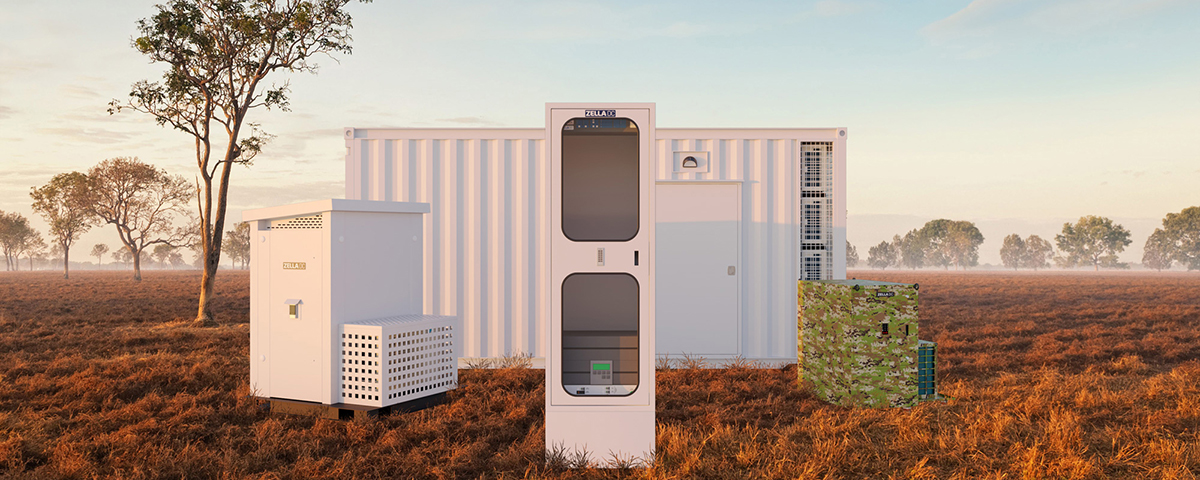In today’s fast-evolving technological landscape, businesses face increasing pressure to process and manage vast amounts of data at unprecedented speeds. With the rise of edge computing, organisations are turning to micro data centres as an innovative solution to handle their IT infrastructure needs. These compact, scalable units are transforming how data is processed, offering efficiency, flexibility, and reduced costs compared to traditional centralised data centres. Below, we explore the top benefits of using micro data centres and why they are critical for the future of IT infrastructure.
1. Enhanced scalability and flexibility
One of the most significant advantages of micro data centres is their scalability. Whether your business is a startup or a global enterprise, micro data centres can be scaled up or down to meet your specific needs. Instead of investing in large, fully fitted server room that may exceed your current requirements, micro data centres offer a modular approach. This means you can deploy additional units as your business grows without overhauling your entire IT infrastructure.
Moreover, micro data centres provide flexibility in deployment. They can be installed virtually anywhere — indoors, outdoors, or even in remote locations. This adaptability is crucial for industries such as telecom, healthcare, mining, and retail, where edge computing is becoming the norm.
2. Reduced latency and improved performance
Micro data centres bring computing power closer to the point of data generation, which significantly reduces latency. Traditional centralised data centres often require data to travel long distances between devices and servers, creating delays that can hinder real-time applications. Micro data centres, on the other hand, can process data locally, enabling faster response times and improved performance.
For businesses that rely on low-latency applications, such as autonomous vehicles, AI-driven systems, or smart factories, the speed and efficiency of micro data centres are invaluable. They ensure that data is processed almost instantaneously, supporting real-time decision-making and enhancing overall productivity.
3. Cost efficiency
Traditional data centres require large-scale infrastructure, dedicated facilities, and high operating costs. Micro data centres eliminate the need for these expenses by offering a compact, self-contained solution. They are pre-configured, pre-tested, and require minimal maintenance, which translates into lower operational costs.
Additionally, micro data centres can help reduce energy consumption. Zella DC’s micro data centres, for example, are designed with energy efficiency in mind, using advanced cooling systems that minimise power usage. This makes them an environmentally friendly and cost-effective alternative to traditional data centres.
4. Edge computing capabilities
Edge computing is driving the demand for micro data centres. As businesses increasingly adopt IoT (Internet of Things) devices, the need for localised data processing grows. Micro data centres are ideally suited for edge computing, allowing businesses to process and analyse data at the edge of the network, closer to where it is generated.
By enabling edge computing, micro data centres reduce the amount of data that needs to be sent to the cloud for processing. This decreases bandwidth usage, reduces latency, and enhances the security of sensitive data. For industries such as manufacturing, where edge computing is essential for real-time monitoring and automation, micro data centres provide the perfect solution.
5. Security and compliance
Security is a top concern for businesses handling sensitive information. Micro data centres offer robust security features, including encryption, firewalls, biometric access controls, and real-time monitoring. This ensures that data is protected both at rest and in transit, reducing the risk of cyberattacks.
Additionally, micro data centres can help businesses meet regulatory requirements. Many industries are subject to strict data privacy and compliance standards, such as GDPR or HIPAA. With micro data centres, businesses can process and store data locally, ensuring that they remain compliant with data sovereignty regulations.
Zella DC’s micro data centres, for example, come equipped with advanced access control systems; these features are particularly valuable for industries like healthcare and finance, where protecting sensitive data is paramount.
6. Rapid deployment and minimal maintenance
Time is of the essence when deploying new IT infrastructure. Micro data centres are designed for rapid deployment, allowing businesses to get up and running quickly. Unlike traditional data centres, which can take months to build and configure, micro data centres are pre-engineered and pre-tested, reducing the time required for installation.
Once deployed, micro data centres require minimal maintenance. Their compact design simplifies management, and with remote monitoring capabilities, IT teams can oversee operations from a central location. This reduces the need for on-site maintenance and minimises downtime, ensuring continuous operation.
7. Environmental benefits
In an era where sustainability is becoming a priority, micro data centres offer significant environmental benefits. Traditional data centres are notorious for their high energy consumption, contributing to carbon emissions and environmental degradation. Micro data centres, on the other hand, are designed with energy efficiency in mind.
Many micro data centres, including those from Zella DC, feature precision cooling systems that use less power than traditional cooling methods. They also have a smaller physical footprint, which reduces the amount of land and resources required for deployment. For businesses looking to reduce their environmental impact, micro data centres provide a greener alternative to traditional infrastructure.
8. Disaster recovery and business continuity
Disaster recovery and business continuity are critical for any organisation. Micro data centres play a crucial role in ensuring that businesses can recover quickly from unexpected events, such as natural disasters, power outages, or cyberattacks. By decentralising data processing and storage, micro data centres create redundancy, ensuring that critical data and applications remain accessible even in the event of a failure.
Moreover, micro data centres can be deployed in multiple locations, providing businesses with the ability to maintain operations even if one location is compromised. This level of resilience is particularly important for industries such as finance, healthcare, and government, where downtime can have severe consequences.
Revolutionising IT infrastructure
Micro data centres are revolutionising the way businesses manage their IT infrastructure. Their scalability, reduced latency, cost efficiency, and edge computing capabilities make them an attractive solution for organisations of all sizes. By embracing micro data centres, businesses can enhance their performance, reduce costs, and ensure that their IT infrastructure is prepared for the future of data processing.
As businesses continue to adopt edge computing and the Internet of Things, the demand for micro data centres will only grow. With their ability to provide localised data processing, enhanced security, and rapid deployment, micro data centres are poised to become the backbone of modern IT infrastructure.






